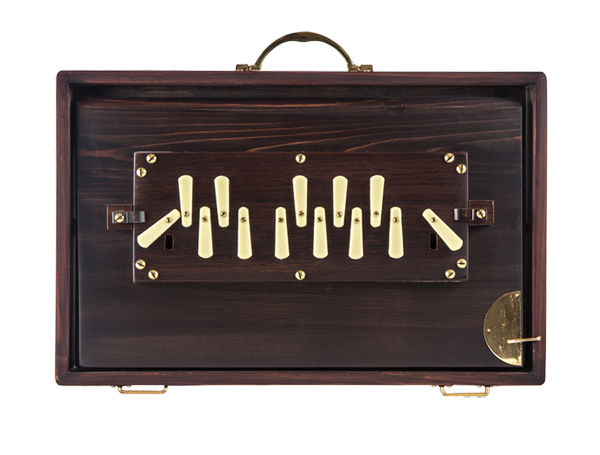A Sound Journey to Mental Wellness
Music, often referred to as the universal language, has the extraordinary ability to evoke emotions, transport us to different realms, and even impact our mental well-being. One fascinating aspect of music that contributes to its therapeutic potential is the presence of harmonic overtones. In this blog post, we'll explore what harmonic overtones are, their significance in music, and how the judicious practice of listening to music with overtone-emitting instruments can bring about remarkable benefits for mental wellness.
Understanding Harmonic Overtones
Harmonic overtones, also known as partials or harmonics, are additional frequencies that resonate above the fundamental frequency of a musical note. When a musical instrument produces a sound, it is not a singular, pure tone but a complex combination of multiple frequencies. These overtones create a unique sonic fingerprint for each instrument and contribute to the richness and timbre of the sound.
THE SIGNIFICANCE OF HARMONIC OVERTONES IN MUSIC
Harmonic overtones play a crucial role in shaping the character and identity of musical instruments. For instance, the distinct sound of a violin versus a flute is a result of the specific arrangement and intensity of harmonic overtones. The interplay of these overtones is what gives each instrument its unique voice and emotional resonance.
Listen carefully to the audio below and search for the frequencies that create the overtones
Benefits for Mental Wellness:
1. Enhanced Emotional Expression:
Music with harmonic overtones has a more nuanced and emotionally rich quality. Listening to such music can evoke a wide range of emotions, providing an outlet for individuals to connect with and express their own feelings. This emotional expression is integral to maintaining mental well-being.
2. Stress Reduction and Relaxation:
Certain harmonic overtones, especially those produced by instruments like singing bowls and gongs, have been associated with stress reduction and relaxation. The soothing and meditative qualities of these sounds can induce a sense of calm, helping to alleviate anxiety and promote relaxation.
3. Brainwave Entrainment:
The complex patterns of harmonic overtones may have an impact on brainwave activity. Research suggests that exposure to specific frequencies and patterns can influence brainwave states, potentially leading to improved focus, enhanced creativity, and reduced mental fatigue.
4. Mindfulness and Presence:
Listening to music with harmonic overtones encourages mindfulness and presence. The intricate layers of sound demand attention, guiding the listener into a state of focused awareness. This mindfulness practice can be beneficial for managing stress and improving overall mental clarity.
5. Connection and Community:
Engaging with music that features harmonic overtones can foster a sense of connection and community. Whether through group performances, workshops, or shared listening experiences, the communal aspect of music enhances social bonds and contributes positively to mental well-being.
IN CONCLUSION
Incorporating music with harmonic overtones into our lives can be a powerful tool for promoting mental wellness. Whether it's the resonant tones of a Tibetan singing bowl, the harmonics of a well-played string instrument, or the ethereal sounds of wind instruments, the diverse world of harmonic overtones offers a rich tapestry of healing possibilities. By embracing the therapeutic potential of these musical elements, we can embark on a journey of self-discovery, emotional expression, and enhanced mental well-being. So, let the harmonies guide you to a state of tranquility and balance, as you explore the profound benefits of harmonic overtones on your mental wellness journey.
CURIOUS ABOUT OVERTONE EMITTING INSTRUMENTS?
Become a member of the Overtone app (if you aren't already) and enjoy over a hundred hours of binaural audio sound meditation with overtone emitting instruments.
MORE
OVERTONE CONTEXT











